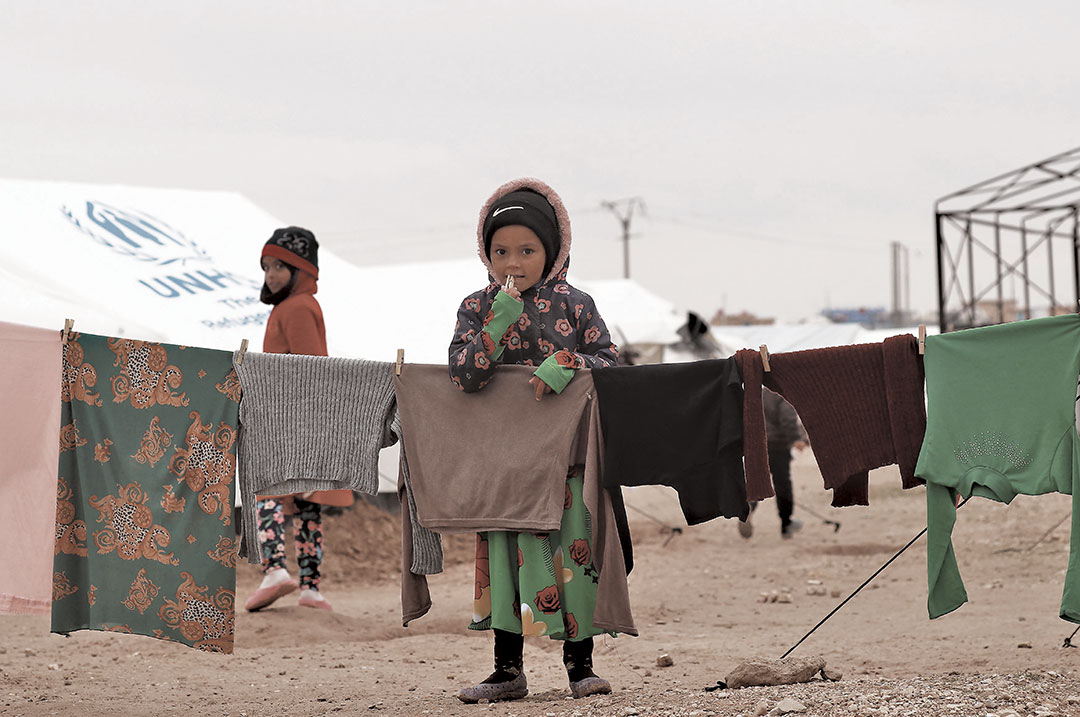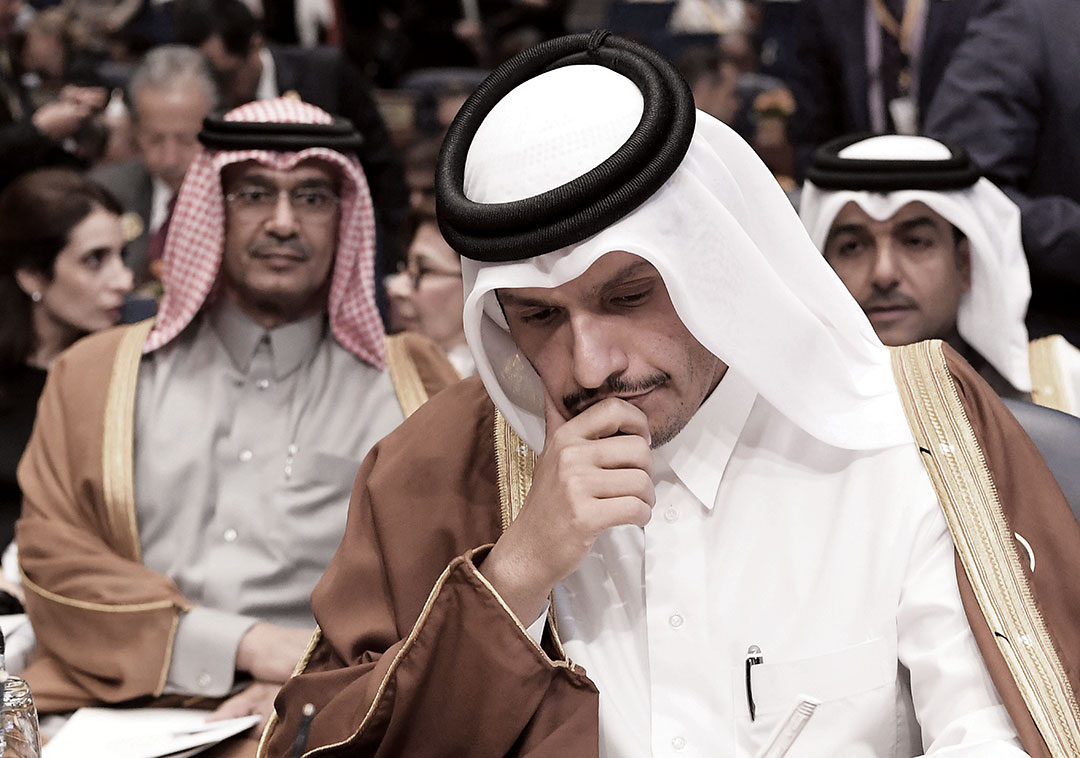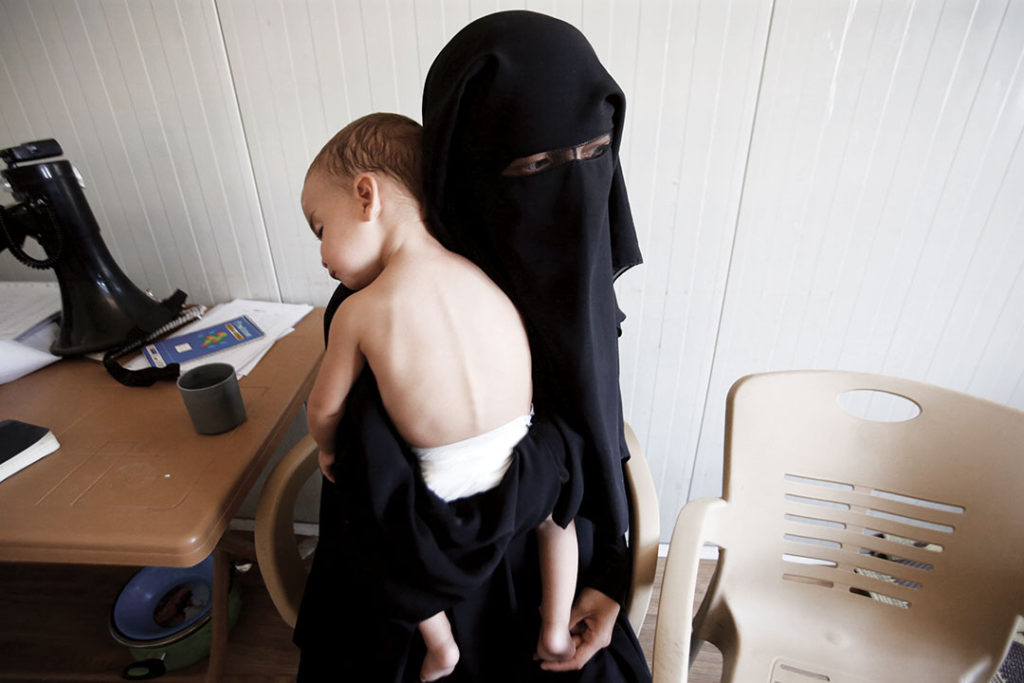Top Qatari official speaks in Doha at the Forum on Returning Foreign Fighters
INFORMATION OFFICE, QATARI MINISTRY OF FOREIGN AFFAIRS
Deputy Prime Minister and Minister of Foreign Affairs Sheikh Mohammed bin Abdulrahman Al-Thani affirmed that Qatar is an active
partner in the international collaboration against terrorism.
At the Forum on Returning Foreign Fighters in November 2018 in Doha, Sheikh Mohammed said the issue of terrorism is a high priority for Qatar. He pointed to the continuous development of national legislation and its related institutional entities to fight terrorism, and the implementation of United Nations resolutions in this regard as well as its active involvement in the international coalition against terrorism.
In a speech during the opening of the forum, Sheikh Mohammed said terrorism in all its forms and manifestations is one of the most serious threats to international peace and security, describing any terror act as a crime, regardless of the motives or identity of the perpetrators, including acts motivated by intolerance, extremism or otherwise.
He added that terrorism cannot be confronted and eliminated unless the international community unites its efforts in a patient, inclusive approach based on cooperation and participation among all states, international and regional organizations, civil society organizations and academic and research entities.
This includes an effective exchange of information in the field of security and prevention of terrorist threats as well as incapacitating and isolating terrorists within the framework of the international strategy to combat terrorism. Also, the international community should abide by international law and abandon the policy of double standards in the fight against terrorism.

AFP/GETTY IMAGES
Sheikh Mohammed pointed to U.N. reports that indicate foreign fighters are motivated by common factors, whether they are from the Middle East, Asia or Europe. Most are young people who lack the ideology of right thinking. He said they belong to oppressed or economically isolated communities, lack opportunities to improve their livelihoods and education, and suffer from a lack of jobs.
He stressed that terrorism cannot and should not be linked to any religion, nationality, civilization or ethnic group.
In his speech, Sheikh Mohammed noted the increased use by terrorists and their supporters of communications technology to spread extremist ideology that helps recruit terrorists and incite acts of violence. States must intensify cooperation to prevent terrorists from exploiting technology, communications and resources in inciting support for terrorist acts.
Sheikh Mohammed added that it was imperative for security and military forces to take urgent measures to enforce law to counter imminent threats posed by terrorist groups that recruit and transport fighters across international borders. But he pointed out that these urgent operations should not stand in the way of addressing the real causes and motives of terrorism.
The international community realizes that foreign fighters pose a serious threat to their countries of origin, the countries they cross and the countries to which they travel, as well as to the countries neighboring the armed conflict zones. According to the U.N., foreign fighters in Syria and Iraq come from more than 100 countries.
The threat posed by foreign terrorist fighters requires comprehensively tackling root causes of terrorism, particularly repressive and sectarian policies, marginalization and the absence of social justice suffered by large groups in some societies, he said.
Societies also must address terrorist incitement by blocking dissemination of radical ideology and focusing on correcting it, promoting political and religious tolerance and economic development, paying more attention to youths, promoting social cohesion and inclusiveness, ending armed conflicts, depriving terrorist groups of the ability to establish themselves and create safe havens, and facilitating reintegration and rehabilitation.
He stressed that the success of any national strategy to integrate returning terrorist elements from the battlefields requires the eradication of environments that incubate extremist ideology and building state capacity to prevent and combat terrorism with full respect for the rule of law and human rights.

National legislation must be brought into line with the state’s obligations at the international level, he added, especially the relevant U.N. Security Council resolutions, in particular resolution No. 2178 of 2014 and resolution No. 2396 of 2017 on criminalizing acts committed by returning combatants and establishing the legal basis for their prosecution and rehabilitating and integrating them into society.
The issue of terrorism is a high priority for Qatar. It is an active partner in international collaboration against terrorism.
“We are committed to addressing it at the national, regional and international levels by participating in all international and regional efforts in this regard,” Sheikh Mohammed said.
He underlined that Qatar has provided humanitarian assistance and supported educational and economic development initiatives and building more flexible societies to combat terrorism and extremism.
Qatar supports the Education Above All initiative, which so far has helped educate 10 million children around the world, noting that this initiative is based on supporting children affected by conflicts and disasters.
To encourage economic empowerment in the Middle East and North Africa region, he said, Qatar supports Silatech, which has provided 1 million jobs for young people in 16 countries since 2008 and seeks to provide 2 million jobs by 2020.
Sheikh Mohammed recognized the legal, political and social challenges facing foreign fighters, especially in light of international differences in legally defining terrorism, frequent politicization of the term terrorism and weak cooperation between states for political reasons.
At the beginning of his speech, Sheikh Mohammed welcomed participants to the two-day forum, noting that the broad participation reflected international will to address the phenomenon of returning foreign fighters.

